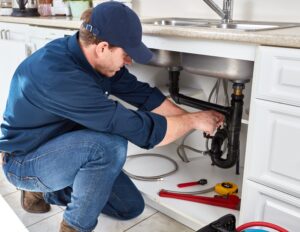
If you’re a homeowner or in the process of renovating a property, the likelihood is there will be some plumbing jobs that need your attention.
The prospect of plumbing bills can be quite daunting, but the good news is that it is possible to turn to DIY plumbing to save yourself time and money. Here’s where you need to start…
Learn the basics of DIY plumbing
YouTube videos are a great way to learn the essentials of DIY Plumbing. There are so many quick and economical fixes that are possible when you’re feeling brave enough to give DIY Plumbing a go. Whether it’s a constantly flushing toilet or a dripping tap, then fixing these yourself can save you a huge amount of money and time.
Basics in plumbing courses are another good idea if you’re planning to attend to basic plumbing maintenance yourself, or if you require essential plumbing skills for a property renovation. You’ll learn hands-on skills with expert tuition to ensure you are doing everything correctly.
Choose the right tools for DIY plumbing
As the saying goes, a workman is only as good as his tools. It is worth investing in reliable materials that will stand the test of time and save you money in the long run.
The main consideration for gas and plumbing work will be the pipework you choose. It can be easy to assume that the cheapest materials will be the most economical, but you want to weigh up the balance between cost, quality and ease of construction. Look beyond PVC piping and you’ll discover TracPipe, a corrugated flexible stainless steel water and gas pipe that requires no joints, is malleable and therefore easily formed around corners or obstructions.
This also means that there is a much reduced risk of leaks and why TracPipe should be the first choice for domestic pipeline installations or gas pipe replacements in houses, flats and apartments.
One of the most awkward aspects of plumbing is the installation, especially in enclosed spaces or voids. The innovative technology of TracPipe overcomes this both internally and externally, as TracPipe can be fed through walls, under floors and in trenches, subject to the building regulation requirements.
Know when to call in the professionals
It is always important to know where to draw the plumbing DIY line. If a job seems beyond your skill level or may require specialist equipment, then when it comes to plumbing, it’s often better to call in a professional plumber. Bodging a job or potentially creating more damage than good can lead to a more costly job to fix. So don’t be overly ambitious and accept defeat when necessary! To find your local plumber, then search your locality and job type to find the right person for the job.
Read more:
Plumbing Saviours – Economise on Time and Money For Your Home Plumbing
